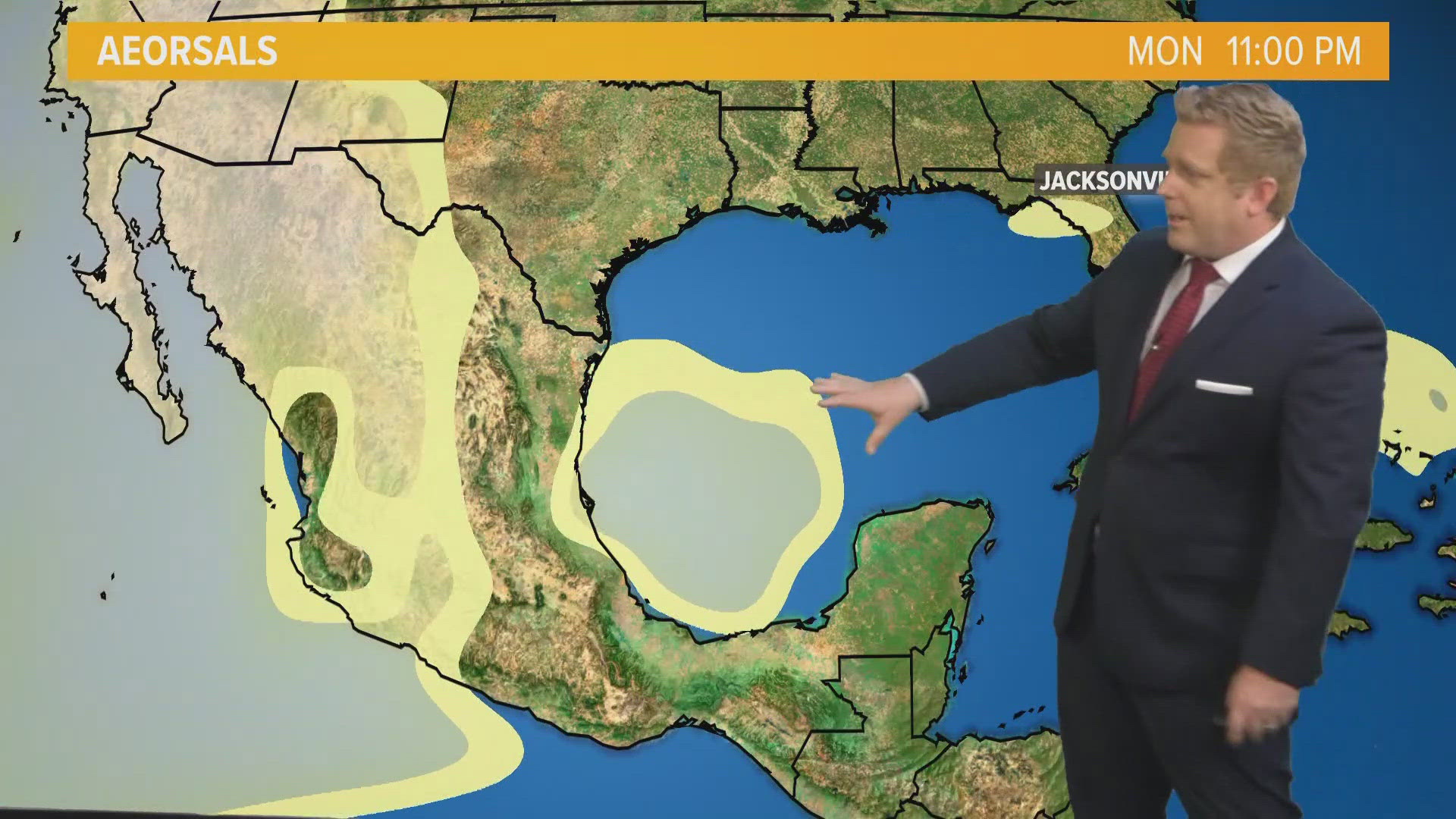JACKSONVILLE, Fla. — Over the past month, Mexico has been impacted by hundreds of wildfires scorching more than 12,000 acres of land. These fires, fueled by severe drought and strong winds, have had significant impacts on the country. However, beyond the immediate devastation, these wildfires are having a secondary impact on tropical cyclone development.
The wildfires raging across Mexico have been ongoing for several months, with dry conditions and gusty winds providing the perfect environment for their spread. As firefighters and communities struggle to contain the flames, the wildfires continue to consume vast areas of forest and brush. The smoke from these fires has also reduced air quality but also plays a role in larger atmospheric phenomena.
Interestingly, the smoke generated by these wildfires can influence tropical cyclone activity. Much like Saharan dust, which is known to inhibit cyclone formation, wildfire smoke injects dry air into the atmosphere. This dry air can infiltrate developing storms, weakening them by depriving them of a critical ingredient for cyclone development: tropical moisture.
For a tropical cyclone to form and intensify, several key conditions must be met:
- Warm Ocean Waters: Sea surface temperatures need to be at least 26.5°C (80°F) to provide the heat and moisture necessary for a cyclone's formation.
- Moist Air: A humid atmosphere is crucial for the development of thunderstorms, which are the building blocks of cyclones.
- Low Wind Shear: Wind shear is the change in wind speed and direction with height. Low wind shear allows the storm to organize and strengthen.
- Pre-existing Weather Disturbance: Cyclones typically form from pre-existing disturbances like tropical waves.
The presence of wildfire smoke introduces dry air into the equation, disrupting the humidity needed for cyclone development. This effect can prevent storms from reaching their full potential, thereby reducing the frequency and intensity of tropical cyclones.
The smoke produced by these fires not only affects local air quality but also plays a significant role in tropical weather patterns. By injecting dry air into the atmosphere, wildfire smoke can hinder cyclone development. It's just one ingredient in tropical cyclone development that we will continue to monitor at the hurricane center on First Coast News.

